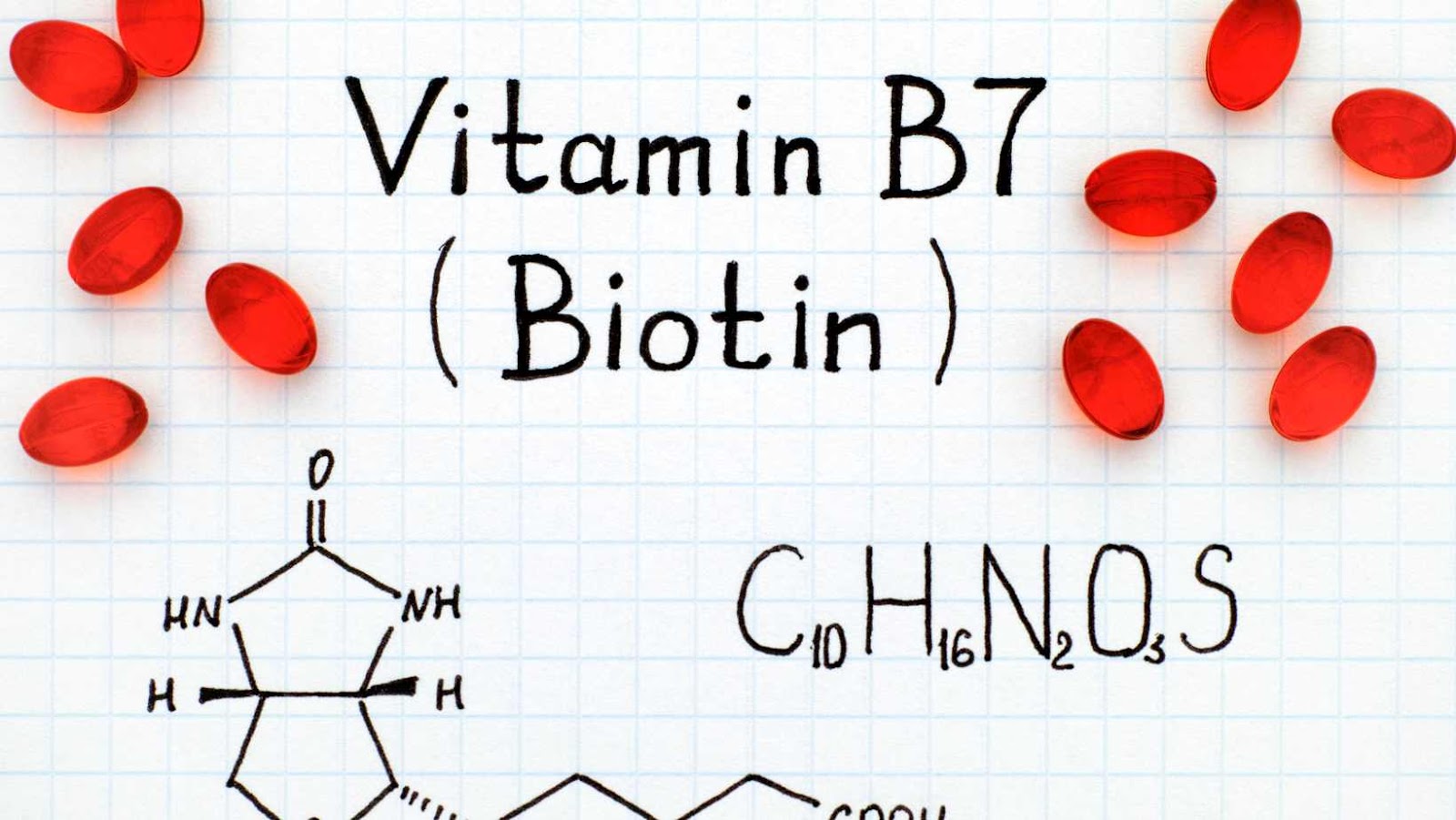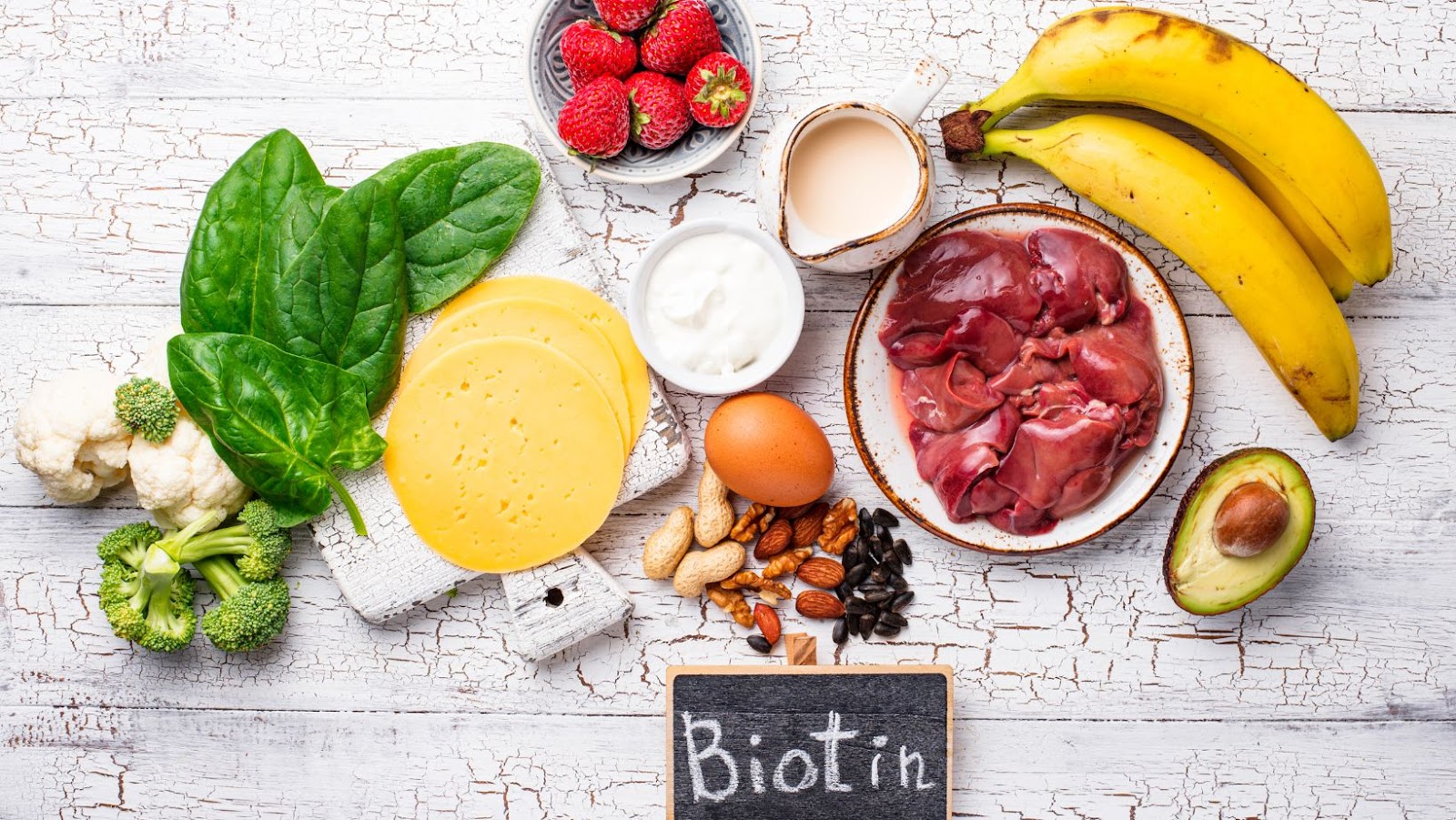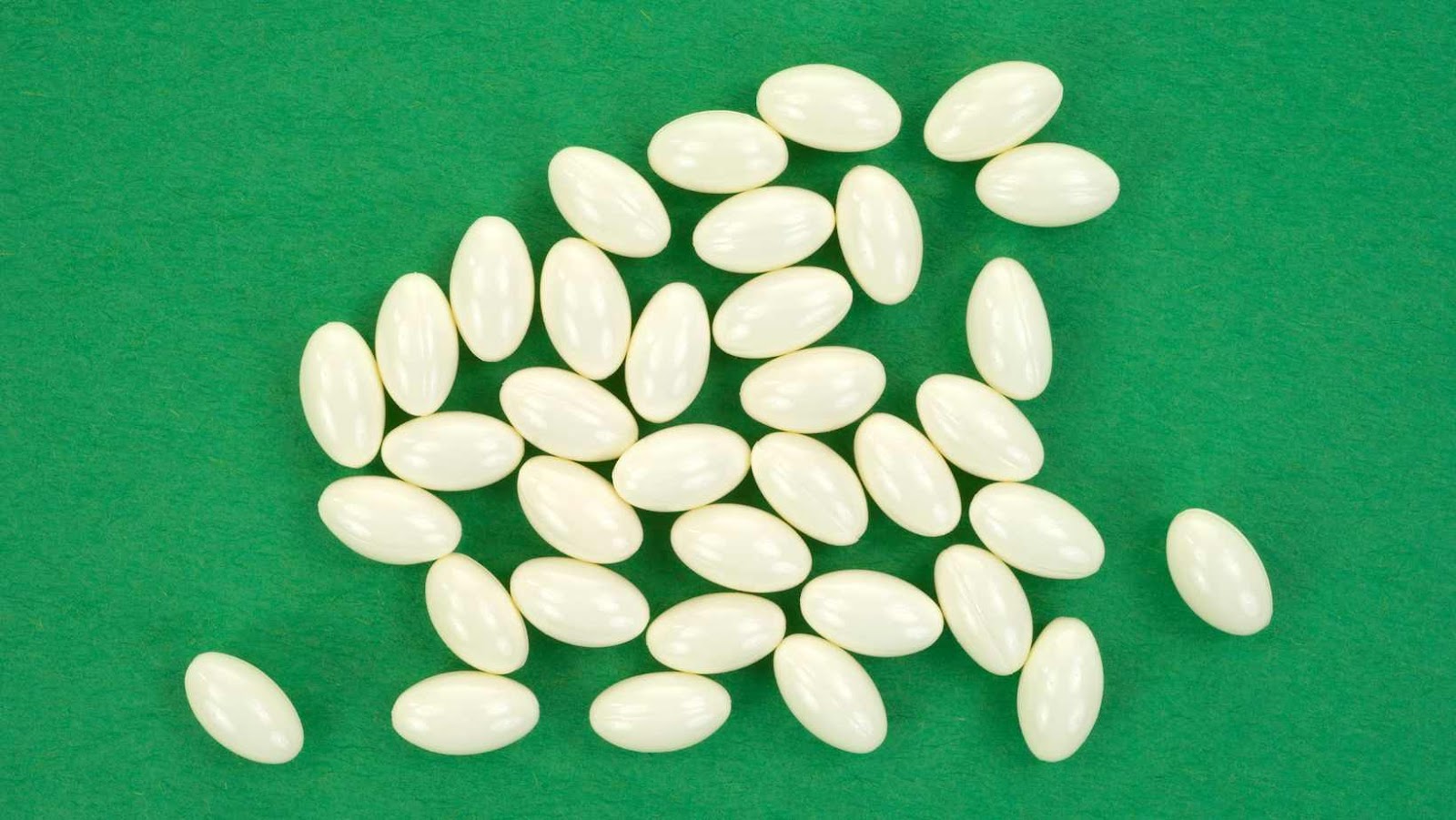Yes, 10,000 mcg of Biotin is too much for most people. While Biotin, a B-vitamin, is essential for healthy hair, skin, and nails, taking high doses can cause some side effects.
Here’s why:
| Biotin has a low toxicity level, but taking too much of it can lead to its accumulation in your body. This can lead to skin rashes, digestive upset, and acne breakouts. |
| Additionally, high doses of Biotin can interfere with lab test results, particularly those that measure thyroid and hormone levels. |
Unless prescribed by a healthcare professional, a recommended dosage of 30-100 mcg per day is considered safe for most individuals. Pro tip: It is recommended to consult a doctor before taking any supplements.
Is 10,000 MCG of Biotin Too Much
Biotin is an essential vitamin needed to produce energy and metabolize fatty acids. The suggested daily intake of biotin is 30 mcg – however, some people take more, up to as much as 10,000 mcg. While there can be some potential benefits to higher doses, it is important to understand the potential effects and dangers of taking more biotin than recommended. Let’s look further into this.
What is biotin?
Biotin is a water-soluble vitamin and part of the B-complex group that helps convert food into energy in the body. It is commonly found in foods like eggs, almonds, cauliflower, mushrooms, and sweet potatoes, among others. Biotin is often used as a supplement to strengthen hair and nails, improve skin health, and support the metabolism of carbohydrates, fats, and proteins.
However, excessive biotin intake can lead to adverse effects, such as acne breakouts, digestive issues, and interference with lab test results. The recommended daily allowance of biotin for adults is 30 mcg, and the maximum safe dose is 10000 mcg/day. Therefore, it is not recommended to consume biotin supplements at a dose exceeding the daily requirement as it may pose health risks. Consult with your healthcare provider before taking any biotin supplement to avoid any potential complications.
The Role of Biotin in The Body
Biotin, also known as vitamin H, is a B-complex vitamin that plays an essential role in the body’s metabolic processes. It helps the body convert food into energy and contributes to the health of the skin, hair, and nails.
The recommended intake of biotin for adults is 30mcg, and for pregnant and breastfeeding women, it is 35-60mcg per day.
Taking 10,000mcg of biotin per day may lead to side effects such as acne, skin rashes, and digestive issues. It can also interfere with lab test results, including thyroid and cardiac function tests.
It is advisable to consult a healthcare professional before taking high doses of biotin as supplements. Overdosing on biotin can be harmful rather than beneficial to the body.
How Much Biotin Does The Body Need?
Biotin is an essential vitamin that helps the body convert food into energy and plays a vital role in maintaining healthy hair, skin, and nails. The daily recommended intake of biotin varies depending on age, gender, and health status. For adults, the recommended daily intake of biotin is 30 micrograms (mcg). However, some people take biotin supplements in doses that exceed the daily recommended intake, such as 10,000 mcg. While this amount is unlikely to cause harm, it may trigger certain side effects such as acne breakouts and allergic reactions in some people.
Additionally, taking excessive amounts of biotin may result in false lab test results, particularly affecting thyroid and hormone levels. Before taking high-dose biotin supplements, it’s essential to consult a healthcare professional to determine the appropriate dosage for you.
Benefits of Biotin
Biotin (also known as vitamin B7) is an important nutrient that humans need in order to stay healthy. It helps regulate the metabolism, keeps hair and nails strong, and helps convert food into energy. Because this vitamin is often recommended as a supplement, it’s important to understand how much is safe to take.
With that in mind, let’s take a look at the possible benefits of taking up to 10,000 mcg of biotin.
The Impact of Biotin Deficiency
Biotin deficiency can have several negative impacts on the body, ranging from dermatological problems to neurological issues. As an essential water-soluble B-vitamin, biotin is responsible for regulating several metabolic processes in the body, including the breakdown of fatty acids and glucose.
Biotin deficiency can lead to hair loss, brittle nails, and dry skin. Along with these, people with a severe biotin deficiency can experience neurological symptoms like seizures, depression, and hallucinations. While biotin supplements can be a great way to maintain good hair and skin health, taking excessive amounts of biotin supplements can have harmful effects on the body. Consuming more than 10,000 mcg of biotin daily can cause adverse effects such as acne, digestive problems, and even interfere with laboratory test results.
It is always advisable to consult a doctor or a nutritionist before taking any supplements to avoid such side effects.
Pro tip: Always look for biotin supplements products that are tested and certified by third-party organizations to ensure its quality and safety.
The Therapeutic Benefits of Biotin
Biotin, also known as Vitamin H, is a water-soluble vitamin that is essential for the growth and maintenance of the body’s tissues. It is often used as a dietary supplement to promote healthy hair, skin, and nails, and its therapeutic benefits go beyond just physical appearance.
Here are some of the therapeutic benefits of Biotin:
| Benefit | Description |
| Supports healthy metabolism | |
| Aids in regulating blood sugar | |
| Helps to reduce inflammation | |
| Promotes healthy brain functions | |
| Enhances immune system |
While biotin is an essential nutrient, it is also important to be aware of how much you are taking. The recommended daily intake for adults is 30mcg, and while doses up to 10,000mcg have not shown to be toxic, it is important to consult with a healthcare professional before taking high doses. Pro Tip: Consult with your healthcare provider before starting any new supplement.
The Effects of Biotin on Hair, Skin, And Nails
Biotin is a B-vitamin that plays a vital role in maintaining healthy hair, skin, and nails. While biotin supplements are commonly taken to promote hair growth and prevent hair loss, taking too much biotin can have adverse effects on your health. The benefits of biotin include promoting hair growth, strengthening hair and nails, and improving skin hydration and elasticity. Biotin helps to convert nutrients into energy and plays a crucial role in cell growth and repair.
However, taking high doses of biotin supplements, such as 10,000 mcg, can lead to falsely elevated lab results, affecting the diagnosis of certain medical conditions. Additionally, high doses of biotin may cause acne, digestive issues, and skin rash. It is recommended to consume biotin in moderation, preferably through a healthy and balanced diet that includes foods rich in biotin, such as eggs, almonds, sweet potatoes, and spinach. Consult with your healthcare provider before starting any biotin supplement.
Pro Tip: Taking biotin supplements may benefit your hair, skin, and nails, but it is crucial to consume it in moderation to avoid adverse health effects. Incorporate biotin-rich foods into your diet and consult with your healthcare provider before taking any biotin supplements.

10,000 MCG of Biotin – Too Much?
Biotin is an essential B-complex vitamin that helps regulate your metabolism and plays an important role in maintaining healthy skin and hair. Many people take Biotin to support these functions, but some people take a very large dosage – 10,000 mcg. Is this a safe and effective amount? Let’s explore the pros and cons of taking this high dosage.
Potential Side Effects of Taking a High Dose of Biotin
Taking a high dose of biotin, such as 10,000 mcg, can lead to potential side effects that can impact your health in multiple ways.
Some potential side effects of taking a high biotin dosage include:
| 1. Acne: High doses of biotin can make your skin acne-prone, resulting in redness, whiteheads, and blackheads. |
| 2. Digestive Issues: Taking too much biotin supplements can cause digestive issues like cramps, diarrhea, and even constipation. |
| 3. Allergic reactions: High doses of biotin may cause skin rashes, itching, difficulty in breathing, and even anaphylaxis, a severe and potentially life-threatening allergic reaction. |
| 4. High levels of blood test results: Taking high doses of biotin may interfere with diagnostic blood tests and lead to false results. |
It is always best to consult a healthcare professional before taking any high doses of supplements, including biotin, to avoid any potential side effects.
Pro tip: Stick to the recommended dosage levels suggested by your doctor or pharmacist to ensure optimal health and avoid any adverse side effects.
How Much Biotin is “Too Much”?
While biotin is a beneficial nutrient, consuming too much of it can lead to potential health concerns, such as acne breakout, allergic reaction, and digestive issues. The recommended daily intake of biotin for adults is 30 mcg, and the maximum safe dosage is 10,000 mcg per day. Consuming 10,000 mcg of biotin regularly can interfere with results of certain lab tests like thyroid function test and troponin. Hence, it’s recommended to take biotin supplements under recommended dosage only – overdosing or under-dosing it can lead to negative impacts on human health. Consulting a healthcare professional, especially if you are pregnant or suffer from health conditions like allergies, Diabetes or have undergone surgery, is always advisable before starting any biotin supplements.
When to Avoid High Dose Biotin Supplements
High dose biotin supplements are generally considered safe and well-tolerated by most people. However, it is important to be aware that high doses of biotin can interfere with certain laboratory tests, leading to false results. As a result, it is recommended to avoid taking high doses of biotin supplements 2-3 days before undergoing any laboratory tests. High dose biotin supplements are those that contain more than 1000 mcg of biotin per day. The daily recommended intake of biotin for adults is 30 mcg/day. Therefore, taking a biotin supplement containing 10,000 mcg of biotin is not necessary and may cause more harm than good. In addition to interfering with laboratory tests, high doses of biotin may lead to skin rashes, acne, and digestive upset.
It is always best to consult with a healthcare professional before starting any new supplement regimen.
Pro tip: Read supplement labels carefully and choose a biotin supplement with no more than 1000 mcg of biotin per serving to avoid unwanted side effects.
Safe Intake of Biotin
Biotin is an important B-vitamin that plays a role in growth, metabolism and other essential functions in the body. While biotin is essential for overall health, consuming too much of a good thing can have potential consequences. This article will dive into the safe intake of biotin, exploring whether 10,000 mcg of biotin is too much.
Daily Recommended Intake of Biotin
Biotin, also known as vitamin B7, is an essential vitamin that plays a vital role in maintaining healthy skin, hair, and nails. The recommended daily intake of biotin for adults is 30 mcg per day. However, biotin is also available in supplement form, with dosages ranging from 10 mcg to 10,000 mcg. While biotin supplements are generally safe to consume, taking 10,000 mcg per day may lead to adverse effects such as skin rash, digestive issues, and an increased risk of developing cystic acne. It’s always best to consult with a healthcare professional before taking any new supplement, including biotin, to determine the appropriate dosage for your specific needs. Pro Tip: Instead of relying solely on supplements, consider incorporating biotin-rich foods such as almonds, whole grains, and spinach into your diet to meet your daily biotin needs.
How to Ensure You’re Getting Enough Biotin
Biotin, also known as Vitamin B7, is an essential nutrient that helps maintain the health of your skin, hair, and nails. While biotin supplements can be beneficial, taking too much can lead to potential side effects. The recommended daily intake of biotin varies depending on age, gender, and specific health needs. For most adults, a safe and adequate amount of biotin is around 30 micrograms per day. However, some supplements contain as much as 10,000 micrograms of biotin, which is far above the recommended intake. Taking excessive amounts of biotin can lead to potential side effects like acne, digestive issues, and interference with laboratory blood tests.
To ensure that you’re getting enough biotin, focus on incorporating biotin-rich food sources into your diet like eggs, nuts, and whole grains. If you decide to take a biotin supplement, consult with your healthcare provider to determine the appropriate dosage for your specific needs.
Pro tip- Always abide by the recommended dosage for supplements to avoid any adverse effects on your health.
The Importance Of Consulting A Healthcare Provider Before Taking High-Dose Biotin
Biotin, also known as vitamin B7, is often hailed as a cure-all for hair, skin, and nail health. However, taking high doses of biotin, such as 10,000 mcg or more, can be harmful to your health, especially if you have certain underlying medical conditions like diabetes or thyroid disorders. Therefore, it’s crucial to consult with your healthcare provider before taking high-dose biotin supplements. Your healthcare provider can evaluate your individual needs, suggest an appropriate dosage, and monitor your biotin levels to prevent any complications. While biotin is generally safe in lower doses, taking too much can result in adverse effects, such as skin rashes, digestive issues, and even interference with lab tests. So, don’t take high-dose biotin without medical supervision, as it may do more harm than good.
Is 10,000 MCG of Biotin Right For You?
It’s no secret that biotin can be a beneficial supplement to take. What isn’t commonly known is the right dosage for an individual. Many people are taking upwards of 10,000 mcg of biotin per day, but is that the right amount for everyone?
Let’s look at the pros and cons of such a high dosage.

Factors to Consider Before Taking High-Dose Biotin
While biotin is known to have many health benefits, there are several factors to consider before taking high doses, such as 10,000 mcg, of it.
Here are the factors to consider:
| Pre-existing medical conditions: | If you have any medical conditions like diabetes or thyroid disorders, taking high doses of biotin can interfere with your medication or lead to inaccurate test results. |
| Medications: | Certain medications can interact with biotin and cause adverse effects. |
| Pregnancy and breastfeeding: | There isn’t enough research on the safety of high-dose biotin during pregnancy and breastfeeding, so it’s best to avoid it. |
| Allergies: | People who are allergic to biotin or any other ingredients in biotin supplements should avoid taking them. |
| Dosage: | High-dose biotin is not required for most people, and it can cause side effects like acne and gastrointestinal issues in some people. |
Always consult your doctor before taking high doses of biotin or any supplements. Pro Tip: Opt for foods naturally rich in biotin instead of supplements to minimize the risk of side effects.
How to Determine Your Biotin Needs
Biotin or Vitamin H is a crucial nutrient for healthy hair, skin, and nails. However, it’s essential to determine your biotin needs before consuming 10,000 mcg of biotin daily.
Here are some factors that affect biotin requirements:
| Age | Infants and young children need less biotin compared to adults. |
| Pregnancy and breastfeeding | Women who are pregnant or nursing may require higher biotin intake. |
| Health conditions | People with medical conditions like Crohn’s disease, liver disease, and kidney problems may require more biotin. |
| Diet | People who consume a diet low in biotin-rich foods may require a biotin supplement. |
Consult with a healthcare professional to determine your biotin needs and decide whether 10,000 mcg of biotin supplementation is appropriate for you. It’s important to note that high doses can cause adverse effects, and supplements should only be consumed after proper consultation.
Making an Informed Decision About Biotin Supplement Intake
Biotin supplements have become increasingly popular for their supposed benefits to hair, skin, and nail health. However, before deciding on a particular dosage, understanding your body’s biotin needs is crucial. The recommended daily intake of biotin is 30 mcg for adults, while biotin supplements commonly come in doses ranging from 1,000 to 10,000 mcg. While biotin is generally safe and non-toxic, taking high doses, such as 10,000 mcg, may lead to adverse side effects, such as skin rashes, acne breakouts, and digestive issues.
Factors that can affect biotin levels in the body include genetics, lifestyle choices, and certain medical conditions. If you’re considering taking biotin supplements, consulting with a healthcare provider can help you make an informed decision about the appropriate dosage for your body’s specific needs.
| Pro tip: |
| Instead of relying solely on biotin supplements, incorporating biotin-rich foods into your diet, such as eggs, nuts, and seeds can help maintain healthy biotin levels in the body. |
